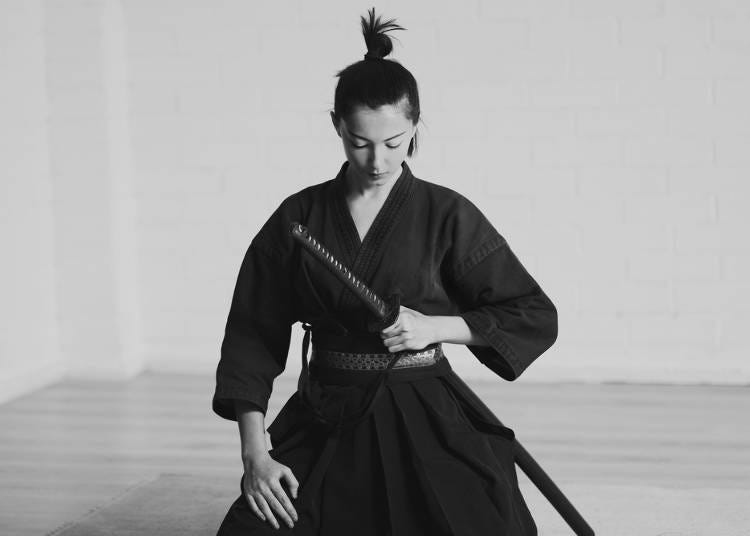
“These Are the Japanese Words Trending Worldwide” — Japanese Terms That Have Gone International, According to People from Five Countries
- Written by: Pomeranian Takahashi
According to a report by the CIA in the United States, Japanese is considered one of the most difficult languages in the world to learn. Even many native speakers worry about whether they’re using it correctly—so it’s no surprise that for non-native learners, it can feel even more challenging at times.
But despite how tough it can be, Japanese words are starting to pop up more and more outside Japan, thanks in part to the global popularity of Japanese culture. Well-known foods like sushi and tempura are already recognized worldwide, and even the uniquely Japanese concept of "mottainai" is being used overseas just as it is in Japan.
That brings up an interesting question: What other Japanese words are actually used and understood abroad?
To find out, I asked people from five different countries about the Japanese words they hear or use in their own countries. The results gave me a fascinating glimpse into how the language is traveling—and how Japanese is showing up in everyday conversations far beyond Japan.
Japanese Youth Slang Is Trending Among Young People in Korea Too!

Japan’s next-door neighbor, South Korea, has no shortage of people studying Japanese—and it turns out that some popular Japanese youth slang has made its way there too.
"Tsundere"
"When someone acts a bit standoffish or difficult around friends or people they like, we’ll say something like, ‘That person’s totally tsundere.’ Everyone around me knows the term." (South Korea / Female / 20s)
"Tsundere" refers to someone who seems cold or aloof at first but becomes sweet and affectionate when alone with someone. It’s actually a pretty niche word even in Japan, so it might seem surprising that it's being used abroad. But perhaps it’s not too surprising in Korea, where cultural exchange with Japan runs deep.
"Kawaii"
"The Japanese word I use the most is kawaii. I don’t fully understand its meaning, but… I guess I say it when I see something like a dog or cat and feel that little kyun in my chest." (South Korea / Female / 20s)
Kawaii is one of the most widely used Japanese words—not just in Korea, but around the world. Some even say it’s the most globally recognized Japanese word of the 21st century. Its popularity has spread thanks to Japanese pop culture staples like manga, anime, and idol groups, with massive followings overseas.
"Atari"
"The word atari is really popular among people my age, both guys and girls. Just like in Japan, we’ll say things like, ‘Today’s group is an atari!’ at meetups or group hangouts." (South Korea / Male / Teens)
In Korea, atari is used in a similar way to Japan—to describe a positive or lucky outcome, especially in social situations. While the exact reason for its popularity isn't clear, it has become a familiar part of youth slang.
"Surippa" (Slipper)
“My mother taught me to call the footwear worn indoors ‘surippa.’ I’m not sure about the exact age group, but it seems that people older than me, like the parent generation, use this word.” (South Korea / Male / 20s)
The word surippa comes from the English word “slipper.” Although it’s a borrowed word rather than a purely Japanese term, it’s interesting to see it used in Korea as well.
"Ippai"
“The word ippai is used to express having a lot of something. For example, ‘Mizu o ippai kumu’ (to fill up with a lot of water). It’s one of the Japanese words we use regularly in daily life.” (South Korea / Male / 20s)
The Japanese word ippai, which generally means “a lot” or “full,” is also commonly used in everyday conversation in Korea. Besides indicating quantity, ippai has other meanings in Japan—such as being full or satisfied after eating or drinking. It’s even used in casual invitations like ‘Ippai yatte ikanai?’ which means “Shall we go have a drink?” This shows how versatile the word is in different contexts.
Japan’s Karaoke Craze Has Also Swept Across China

Just like in South Korea, Japanese is used in many different situations in China as well. For example, one entertainment activity that Japanese people absolutely love is popular there too.
"Karaoke"
“The Japanese word I often hear is ‘karaoke.’ But its meaning in China is a bit different from Japan. Karaoke places in China are very extravagant—more like Japanese hostess clubs. They have a wide selection of songs, including quite a few Japanese ones.” (China / Male / 40s)
Karaoke, a form of entertainment that originated in Japan, is enjoyed worldwide under the name karaoke, including in China. However, as mentioned, in China it tends to be seen more as an upscale adult entertainment venue.
In Western countries, karaoke is often offered in some pubs or bars, rather than in private karaoke rooms like in Japan.
"Tatsujin"
“When I was back home, my father often used the Japanese word ‘tatsujin.’ He used it to refer to someone who is really skilled, so I think the way the word is used is the same as in Japan.” (China / Male / 20s)
The word tatsujin is used to praise someone who has mastered a particular skill or art, and apparently, it’s also used in China.
"Bento"
“In China, lunch boxes are called ‘bento,’ just like in Japan. Whenever I take the high-speed train, I almost always buy and eat a ‘bento.’” (China / Male / 20s)
The word bento is used in many countries worldwide. It first became trendy in France, where there’s a strong interest in Japanese culture, and from there it gradually spread around the globe.
Japanese Words Commonly Used in Indonesia, a Japan-Loving Country

Indonesia is globally known as a country with close ties to Japan. Despite its complex historical background, including Japanese military rule during World War II, many Indonesians hold a positive view of Japan—partly thanks to the country’s first president, Sukarno, who was a great admirer of Japan. Here are some Japanese words that are commonly used in Indonesia.
"Idol"
“I love Japanese ‘idols,’ and that’s how I naturally learned the word. Recently, Japanese idols have been active here in Indonesia too, which makes them feel even more familiar and close to us!” (Indonesia / Male / 20s)
Japanese idols are highly regarded overseas as well. In 2011, JKT48, a sister group of the famous idol group AKB48, started activities in Jakarta, Indonesia’s capital, where they quickly gained a strong following. Many people are introduced to the Japanese language through idol songs, and Japanese seems to be spreading faster than we might have imagined.
"Samurai"
“I watched the Japanese movie Seven Samurai and completely fell in love with ‘samurai.’ There are many samurai fans around me, and for us, they’re an eternal source of admiration.” (Indonesia / Male / 30s)
The samurai, a historic part of Japanese culture, is world-famous and has many fans abroad. Alongside words like sushi and tempura, samurai is one of the Japanese terms frequently used internationally.
Japanese Subculture Words Gaining Popularity in Mexico

Japanese subculture, including anime and manga, is popular in many countries—and Mexico is no exception.
"Shonen," "Shojo," "Otosan," and "Okasan"
“I often use words like ‘shonen’ (boy), ‘shojo’ (girl), ‘otosan’ (father), and ‘okasan’ (mother). I also love Japanese anime and games, so I can somewhat understand the Japanese used in them!” (Mexico / Male / Teens)
This anime fan from Mexico learned Japanese words like shonen—which means young boys—through phrases that appear in shows. Not just in Mexico, but around the world, many foreigners are introduced to Japanese through its popular subculture.
"Otaku"
“I proudly call myself an ‘anime otaku.’ In Mexico City’s electronics district, there’s a place called ‘Akiba Building’—known as a ‘holy ground’ for otaku in Mexico—and I visit it regularly. There are a lot of Mexicans who love Japanese subculture.” (Mexico / Male / 20s)
The Japanese word otaku is used worldwide. While it carries somewhat negative connotations in Japan, in many other countries it’s embraced positively—as in, ‘I’m an otaku! How cool is that?’—which is an interesting cultural difference.
The Worldwide Hit Word That’s Made Its Way to Italy

Italy is well known for its food culture. Here are some Japanese words that are commonly used in Italy.
"Itadakimasu"
“A friend of mine used the Japanese word ‘itadakimasu.’ In Italian, we say ‘Buon appetito’ before eating, and since it sounds a bit like ‘itadakimasu,’ she seems to have remembered it that way.” (Italy / Female / 20s)
“Buon appetito” means “enjoy your meal” in Italian. It seems some people learn Japanese words simply because they sound similar to words in their own language!
"Tsunami"
“I’m not very familiar with Japanese, but I do know the word ‘tsunami.’ When the big earthquake happened in Japan a few years ago, the news in Italy was talking about ‘tsunami’ almost every day.” (Italy / Female / Teens)
Many foreigners learned the word tsunami after the 2011 Great East Japan Earthquake. Tsunami has now become a globally recognized scientific term.
Other Japanese words that have become part of the global vocabulary include emoji, panko (Japanese-style breadcrumbs), and teriyaki. It’s amazing to realize how familiar words we use every day have become beloved worldwide.
“Kawaii” Is the Most Widely Used Japanese Word Abroad

This survey revealed that Japanese is used in many more ways around the world than most Japanese people might imagine. Especially in Asian countries like South Korea and China, Japanese is often used in everyday situations. In other countries, many foreigners become familiar with Japanese through its pop culture.
The Japanese word that came up most often as being used locally was kawaii. However, many people admitted they’re not exactly sure when it’s best to use it or whether kawaii simply means “cute.” In other words, most just use the word without fully understanding its meaning or nuances.
Because kawaii is a somewhat vague word with different interpretations depending on the person, it’s certainly challenging for foreigners to use it naturally.
Thinking about this, it seems we communicate using an incredibly complex language. This survey not only offered a glimpse of how Japanese is spreading worldwide but also reminded us of just how difficult the language really is.
Survey Participation
-
Akamonkai Japanese Language School Main Campus学校法人 新井学園 赤門会日本語学校 本校
- Address 6-39-12 Higashi-Nippori, Arakawa-ku, Tokyo 116-0014
A Western dog writer who loves eating ramen and gyudon. Find him on X/Twitter @pomehashi.
*Prices and options mentioned are subject to change.
*Unless stated otherwise, all prices include tax.
Popular Tours & Activitiess
Recommended places for you
-

Jukuseiniku-to Namamottsuarera Nikubaru Italian Nikutaria Sannomiya
Izakaya
Kobe, Sannomiya, Kitano
-

Kanzenkoshitsuyakinikutabehodai Gyugyu Paradise Sannomiya
Yakiniku
Kobe, Sannomiya, Kitano
-

ISHIDAYA Hanare
Yakiniku
Kobe, Sannomiya, Kitano
-
Goods

Yoshida Gennojo-Roho Kyoto Buddhist Altars
Gift Shops
Nijo Castle, Kyoto Imperial Palace
-
Appealing

Rukku and Uohei
Izakaya
Sapporo / Chitose
-

Kambei Sannomiyahonten
Yakiniku
Kobe, Sannomiya, Kitano
-

2025 Autumn Colors Report: Kurobe Gorge Nearing Peak
by: Timothy Sullivan
-

See Asakusa and Tokyo Skytree® in a New Light at the "Také Akari" Festival (Winter 2025-2026)
by: Guest Contributor
-

Get Ready to Catch 'Em All! First Ever Permanent Outdoor Pokémon Park Opening Near Tokyo!
-
Ad

Unraveling the History of the Hidden Christians from Goto Islands, Nagasaki Prefecture, located in Kyushu
by: Yohei Kato
-

LaLaport TOKYO-BAY North Building Now Open: Shop, Dine & Enjoy Events at LaLa arena, Just 2 Stops from Disney
by: Wemmy Chau
-

Black Friday 2025: These Are THE Japan Travel & Shopping Deals to Check Out
-

Aizu-Wakamatsu Sake Crawl: Enjoy the Heart of Fukushima's Sake Culture
-

Ikebukuro Station Shortcut: 4 Budget-Friendly Spots for Buzzworthy Sweets
-

Tokyo Dining Guide: Top 5 Asakusa Area Teppanyaki Restaurants!
-

Surprisingly Warm?! 5 Things That Shocked Foreign Travelers About Winter in Northern Japan
-

Easy Day Trip from Tokyo! Ultimate Sightseeing Guide for Hakone & Lake Ashinoko!
-

Yamagata Prefecture Guide: Destinations, Activities, Travel Advice, Shopping & More
by: Steve Csorgo
- #best sushi japan
- #what to do in odaiba
- #what to bring to japan
- #new years in tokyo
- #best ramen japan
- #what to buy in ameyoko
- #japanese nail trends
- #things to do japan
- #onsen tattoo friendly tokyo
- #daiso
- #best coffee japan
- #best japanese soft drinks
- #best yakiniku japan
- #japanese fashion culture
- #japanese convenience store snacks













